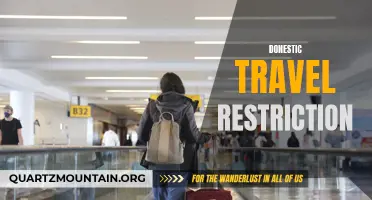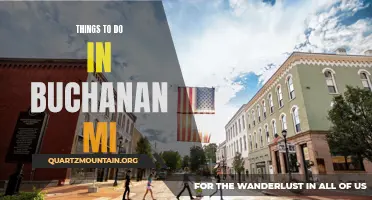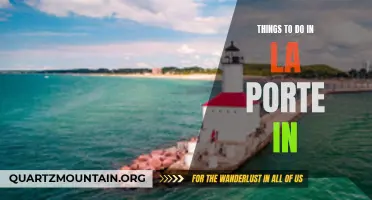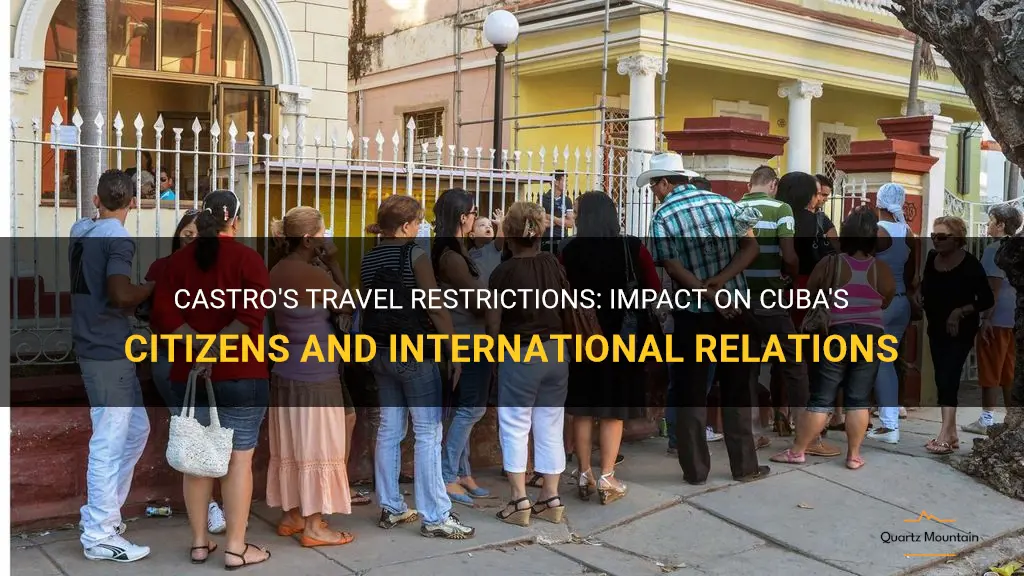
For decades, Cuba has been a tightly controlled and heavily regulated country when it comes to travel. Under the rule of Fidel Castro, strict travel restrictions were imposed on the Cuban people, limiting their freedom to explore the world beyond their shores. These restrictions, designed to preserve the communist regime and prevent citizens from fleeing, deeply impacted the lives of millions, trapping them on an island and cutting them off from the outside world. In this essay, we will delve into the reasons behind Castro's travel restrictions and explore their consequences on the Cuban people.
What You'll Learn
- What were the main restrictions on travel from Cuba during Fidel Castro's rule?
- How did the Castro regime define travel restrictions for Cubans?
- Were there any exceptions to the travel restrictions imposed by Castro in Cuba?
- Did the travel restrictions imposed by Castro affect both international and domestic travel?
- How did the Castro restrictions on travel from Cuba impact the lives and aspirations of ordinary Cubans?

What were the main restrictions on travel from Cuba during Fidel Castro's rule?
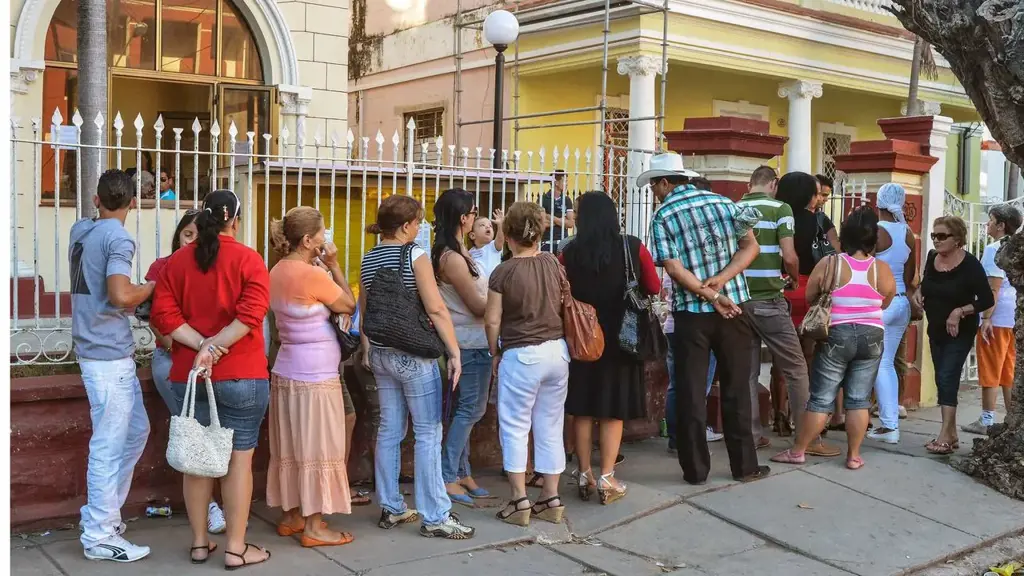
During Fidel Castro's rule in Cuba, there were several main restrictions on travel. These restrictions were put in place by the Cuban government to control the movement of its citizens and limit their exposure to foreign influences.
One of the main restrictions on travel from Cuba was the requirement of an exit visa, also known as the "tarjeta blanca" or "white card." This visa was issued by the government and was necessary for any Cuban citizen who wanted to leave the country. Obtaining an exit visa was not an easy task, as the government had strict control over who was allowed to leave. Cuban citizens had to go through a lengthy and bureaucratic process, including submitting a request and waiting for approval from the authorities. This made it difficult for many Cubans to leave the country, as the government often denied exit visa applications, especially for those who were considered to be critical of the regime or had valuable skills that the government wanted to retain.
Another restriction on travel from Cuba was the limit on the amount of money that Cuban citizens could take with them when they left the country. The government imposed a maximum limit on the amount of foreign currency that individuals could carry, which made it difficult for Cubans to finance their trip and support themselves while abroad. This restriction was aimed at preventing brain drain and ensuring that Cubans would return to the country after their travels.
Additionally, the Cuban government also restricted travel by implementing a system of "prohibited zones." These were areas in the country that were off-limits to Cuban citizens, and they included military bases, government buildings, and other sensitive locations. This restriction was put in place to prevent espionage and unauthorized access to classified information.
Furthermore, travel to certain countries, particularly the United States, was heavily restricted. The Cuban government closely monitored and controlled travel to the US, making it difficult for Cuban citizens to obtain visas and travel permits. This restriction was primarily due to the tense relationship between Cuba and the US, as the two countries had a long history of political and ideological conflict.
Overall, these restrictions on travel from Cuba during Fidel Castro's rule had a significant impact on the mobility and opportunities available to Cuban citizens. The government tightly controlled who could leave the country, limiting their exposure to foreign influences and preventing brain drain. While some restrictions have been eased in recent years, travel from Cuba still remains highly regulated by the government.
Exploring Travel Restrictions for the Bahamas: What You Need to Know
You may want to see also

How did the Castro regime define travel restrictions for Cubans?
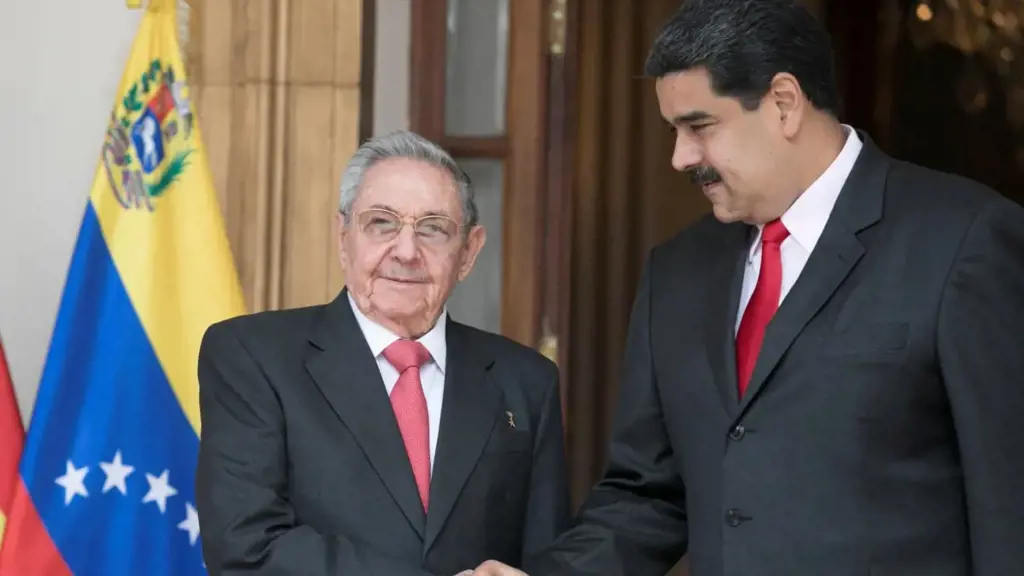
The Castro regime in Cuba implemented strict travel restrictions for its citizens throughout its rule. These restrictions were put in place to maintain control over the population and prevent mass emigration that could potentially weaken the regime. Here we will discuss how the Castro regime defined these travel restrictions for Cubans.
One of the first travel restrictions implemented by the Castro regime was the requirement of an exit visa for any Cuban citizen who wished to leave the country. This exit visa, known as the "tarjeta blanca" or white card, had to be obtained through a lengthy and complex bureaucratic process. Additionally, the regime had the authority to deny the issuance of the exit visa without any explanation or justification.
The regime justified these restrictions by arguing that they were necessary to safeguard the stability of the revolution and to prevent brain drain and the loss of skilled labor. They claimed that allowing unrestricted emigration would lead to the departure of skilled professionals, leaving the country unable to develop economically and technologically.
In addition to the exit visa requirement, the Castro regime also imposed restrictions on travel within the country. Cubans were required to obtain an "interior passport" or "permiso de viaje" in order to travel to other provinces within Cuba. This restriction was put in place to prevent large numbers of people from migrating to urban areas and putting strain on the country's already strained resources.
Travel restrictions were particularly strict for Cubans who were considered politically unreliable or who were seen as potential opponents to the regime. These individuals were often denied permission to travel or faced severe limitations on their movements. Dissidents, activists, and independent journalists were frequently subjected to travel bans, effectively limiting their ability to engage in political activities or to report on human rights abuses and government oppression.
While the Castro regime claimed that these travel restrictions were necessary to protect the revolution, critics argued that they violated the basic human rights of the Cuban people, including the right to freedom of movement. These restrictions were often seen as a means of exerting control over the population and suppressing dissent.
In recent years, there have been some changes to the travel restrictions in Cuba. In 2013, the government introduced a new law that eliminated the need for an exit visa, allowing Cubans to leave the country without prior government authorization. However, the Cuban government still maintains a list of professionals whose departure requires special permission, suggesting that some restrictions on travel still remain in place.
Overall, the Castro regime defined travel restrictions for Cubans through the requirement of an exit visa, restrictions on travel within the country, and limitations on the movements of politically unreliable individuals. These restrictions were justified as necessary to protect the stability of the revolution, but were criticized by many as a violation of basic human rights. While some changes have been made in recent years, travel restrictions in Cuba still exist to some extent.
Understanding California to Illinois Travel Restrictions: What You Need to Know
You may want to see also

Were there any exceptions to the travel restrictions imposed by Castro in Cuba?
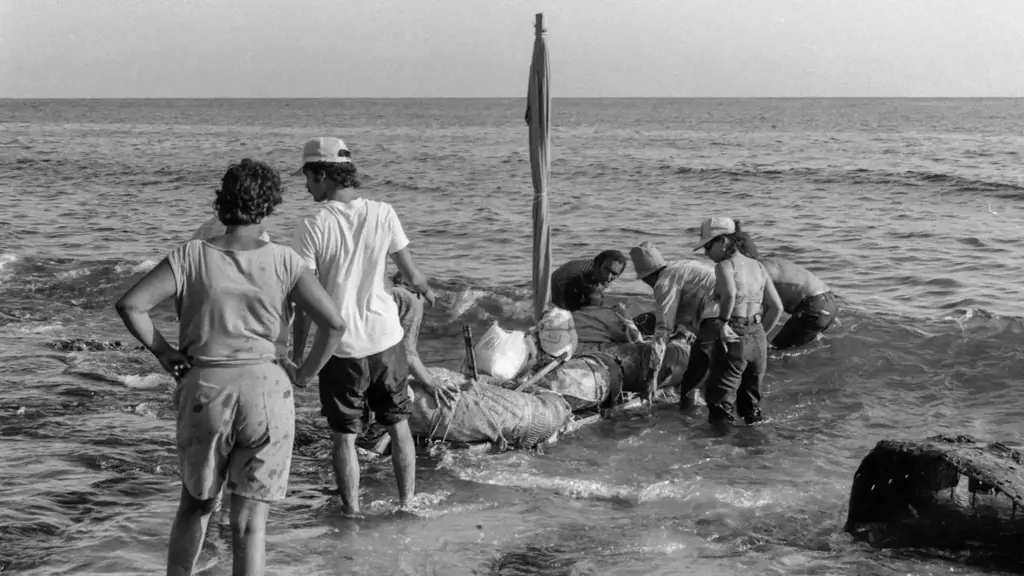
There were numerous exceptions to the travel restrictions imposed by Fidel Castro in Cuba during his time in power. While Castro's government enacted a series of travel restrictions that limited the movement of Cuban citizens, there were certain groups and individuals who were allowed to travel freely, as well as specific circumstances that warranted exceptions to the restrictions.
One of the primary exceptions to the travel restrictions in Cuba was for government officials and diplomatic personnel. As the leader of the Cuban government, Castro and his administration understood the importance of maintaining diplomatic relations with other countries. Therefore, government officials and diplomats were able to travel abroad freely to conduct diplomatic missions and represent Cuba on the international stage.
Another group exempt from the travel restrictions were medical professionals. Cuba has long been known for its high-quality healthcare system, and Castro wanted to ensure that Cuban doctors and healthcare workers had the ability to travel abroad to provide medical aid and assistance in other countries. This exception allowed Cuban doctors to participate in medical missions and provide healthcare services to countries in need.
Additionally, there were certain circumstances that warranted exceptions to the travel restrictions. For example, students who were awarded scholarships to study abroad were allowed to travel freely, as long as they were pursuing an approved academic program. This exception aimed to encourage educational opportunities for Cuban students and promote knowledge exchange with other countries.
Furthermore, Castro also granted exceptions for individuals who had family members living abroad. These individuals were allowed to travel abroad to visit their relatives, as long as they could prove their family ties. This exception aimed to facilitate family reunification and maintain connections between Cuban citizens and their loved ones living in other countries.
It is important to note that while there were exceptions to the travel restrictions in Cuba, they were still relatively limited compared to other countries. The Cuban government maintained tight control over who could travel abroad and imposed strict regulations on those who were eligible for exceptions. This ensured that the majority of Cuban citizens were unable to leave the country, contributing to the high levels of emigration from Cuba during Castro's rule.
In conclusion, while Fidel Castro imposed travel restrictions in Cuba, there were exceptions to these restrictions. Government officials, diplomatic personnel, medical professionals, students with scholarships abroad, and individuals with family members living abroad were among those who could travel freely. However, these exceptions were still relatively limited, and the majority of Cuban citizens were unable to leave the country.
Navigating the American Consulate in Cuba: Understanding Travel Restrictions
You may want to see also

Did the travel restrictions imposed by Castro affect both international and domestic travel?
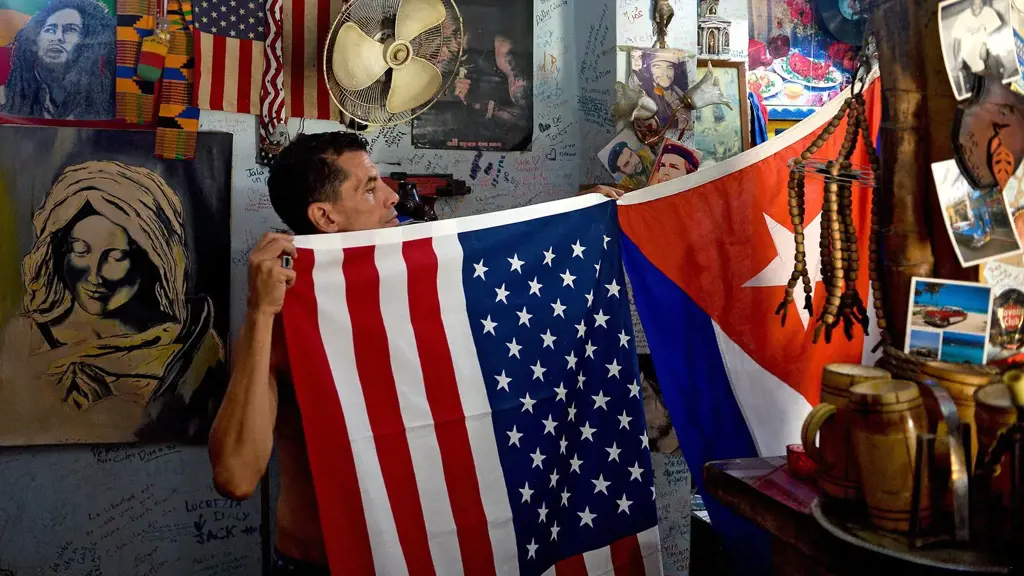
The travel restrictions imposed by Fidel Castro in Cuba had a significant impact on both international and domestic travel. These restrictions were implemented as part of the communist government's efforts to control the movement of people and prevent the spread of counter-revolutionary ideas.
Internationally, Castro's government imposed strict limits on who could enter and exit the country. This made it difficult for Cuban citizens to travel abroad for leisure or to visit family members living in other countries. Travel outside of Cuba required obtaining an exit visa, and the process was known to be lengthy and restrictive. Many individuals were denied exit visas for various reasons, including political activism or suspected counter-revolutionary behavior.
Additionally, restrictions on international travel extended to foreign nationals trying to enter Cuba. Passport control was strict, and travelers were often subjected to questioning and scrutiny. The Cuban government closely monitored the activities of visitors, particularly anyone suspected of having anti-government sentiments or contacts.
On the domestic front, Castro's government restricted travel within the country as well. This was done to prevent internal migration from rural areas to urban centers, as the government sought to maintain control over the population's movements and prevent overcrowding in major cities like Havana. Travel permits were required to visit certain areas, and individuals were subject to questioning and checks by state security.
One of the most significant impacts of these travel restrictions was the separation of families. Many Cubans had family members living in other countries, particularly in the United States, and the restrictions made it extremely difficult to reunite with loved ones or travel for important family events such as weddings or funerals.
The travel restrictions also had economic consequences. With limited access to international markets and tourism significantly restricted, the Cuban economy suffered. The country's tourism industry, which could have been a significant source of revenue, was greatly hindered by the stringent controls on travel.
Over time, the travel restrictions imposed by Castro's government became a point of contention both within Cuba and internationally. Advocacy groups and human rights organizations condemned the restrictions as a violation of individuals' right to freedom of movement. As a result, there were some loosening of the restrictions in the late 1990s and early 2000s.
In summary, the travel restrictions imposed by Castro had a profound impact on both international and domestic travel in Cuba. The limitations on exit visas and strict controls on who could enter or exit the country restricted the movement of individuals and led to the separation of families. Additionally, the restrictions had economic implications, as the tourism industry suffered greatly. Over time, there were some relaxations of the restrictions, but they remained a contentious issue during Castro's rule.
Understanding the Latest AK Travel Restrictions: What You Need to Know
You may want to see also

How did the Castro restrictions on travel from Cuba impact the lives and aspirations of ordinary Cubans?
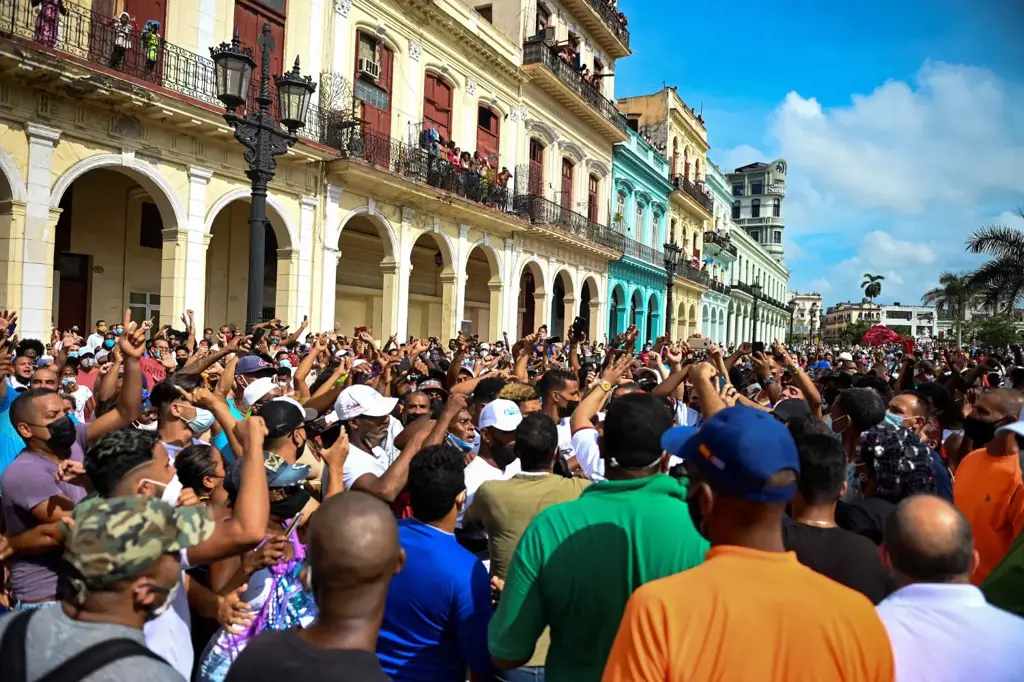
The restrictions on travel from Cuba imposed by Fidel Castro's regime had a significant impact on the lives and aspirations of ordinary Cubans. These restrictions came in the form of strict limitations on who could travel, where they could go, and for how long.
One of the main impacts of these travel restrictions was the separation of families. Many Cubans had relatives living abroad, particularly in the United States, and they were unable to visit them or be reunited with them due to the restrictions. This caused immense emotional distress and created a sense of perpetual longing for their loved ones. The inability to see family members who had settled in other countries impacted both their personal lives and their ability to maintain connections and support networks.
In addition to the separation of families, the travel restrictions also limited the opportunities for educational and cultural exchange. Cubans were unable to travel abroad to pursue higher education or participate in international conferences and workshops. This limited access to knowledge and experiences had a detrimental effect on their intellectual development and professional growth. Without exposure to different ideas and perspectives, their ability to innovate and contribute to various fields was severely hindered.
The travel restrictions also had an adverse impact on the economy. Tourism is a significant industry in many countries, and the limitations placed on travel from Cuba meant that the potential economic benefits from tourism were largely untapped. Increased travel and tourism could have provided employment opportunities for ordinary Cubans and stimulated economic growth. However, the restrictions kept Cuba isolated, preventing the country from fully capitalizing on its tourism potential.
Moreover, the restrictions on travel from Cuba also affected the aspirations of the Cuban people. Many Cubans aspired to explore the world, learn about new cultures, and seek better opportunities abroad. The limitations placed on their ability to travel created a sense of confinement and limited their ability to pursue their dreams. This lack of freedom to explore and strive for a better life restricted the aspirations and ambitions of ordinary Cubans.
Overall, the restrictions on travel from Cuba under Fidel Castro's regime had a profound impact on the lives and aspirations of ordinary Cubans. The separation of families, limited access to education and cultural exchange, missed economic opportunities, and stifled aspirations all contributed to the difficulties faced by the Cuban people. These restrictions created a sense of isolation and hindered the potential growth and development of the individuals and the nation as a whole.
Boston Travel Restrictions for Sunday: What You Need to Know
You may want to see also




